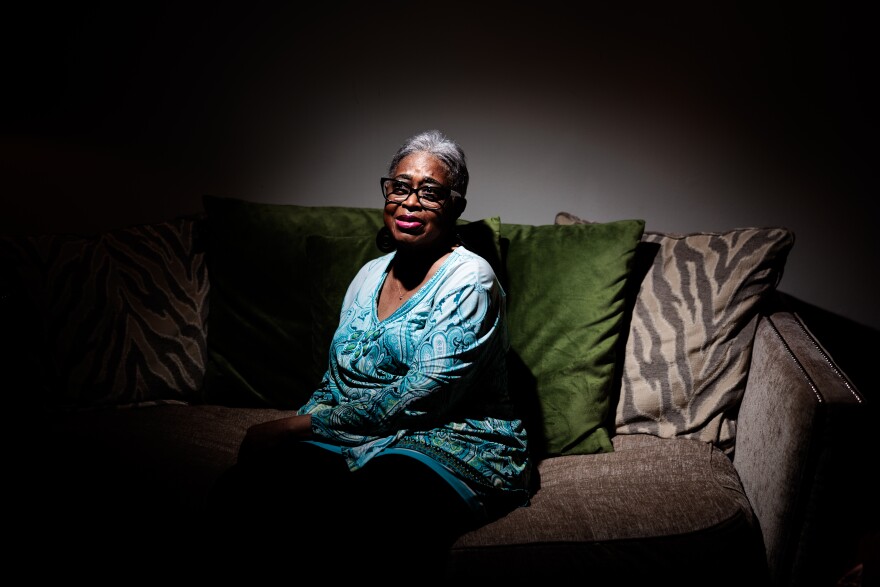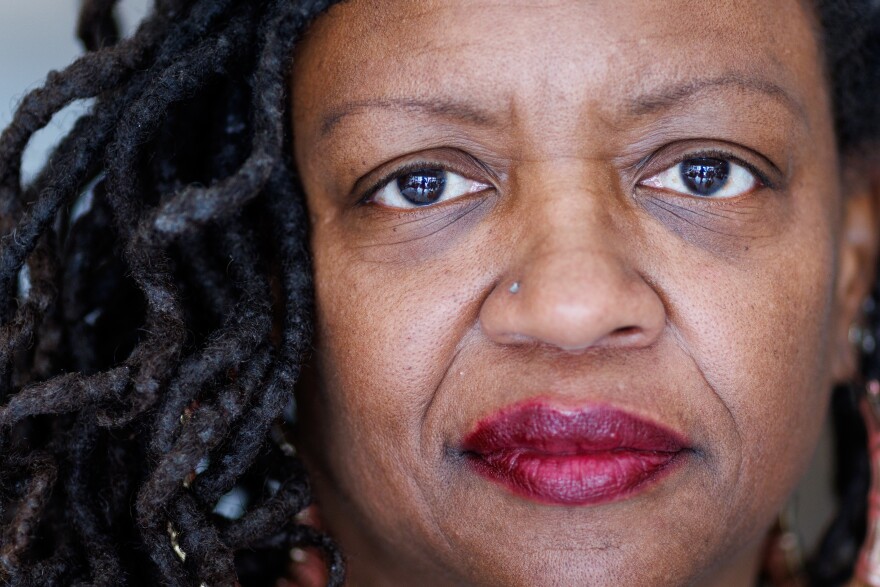Republican congressional leaders are considering cutting $880 billion from the federal budget over the next decade. They have said those cuts will not impact Medicaid, but Democrats argue there’s no way to reach that goal without making adjustments to federal Medicaid or Medicare funding. The U.S. House Committee on Energy and Commerce has been tasked with finding areas within its purview to make reductions.
A report released this month by the nonpartisan Congressional Budget Office found that in order to achieve this level of cuts within the GOP’s time frame, Congress would be forced to pull portions of funding from Medicaid if they do not touch Medicare — a federal health insurance program for adults 65 and up and others with certain medical conditions.
President Donald Trump and Republican congressional leaders have publicly committed to protecting the program for America’s seniors.
Jeanne Robinson and Katina Moss are just two of the roughly 1.9 million Virginians who rely on Medicaid. The Richmond-area women are also advocates for the program. They’ve been sharing their stories with members of Congress, hoping their experiences will help shed light on the lives of Medicaid recipients.
Robinson lives in a tidy condo on the west side of Henrico County. She keeps a formal setting on her dining room table, because she says her wedding china and crystal prevent clutter from amassing. She’s taught her young grandson Malcolm how to use the vacuum, so he can help her clean up before he heads home at night.
She also provides home care for the 7-year-old, who has Down syndrome. Because of his disability, he qualifies for a plan through Cardinal Care that covers the cost of his “complex care needs” while allowing him to live at home with his mother, receive special education services at his school, and access a treatment plan through a case manager.
As a “Consumer Directed Personal Assistant,” the Department of Medical Assistance Services' title for her work, Robinson earns $13 an hour through a program called Public Partnership. That allows the Medicaid recipient or guardian — Malcolm’s mother, in this instance — to determine who provides care and pays that person for their services.
Before becoming Malcolm’s caregiver, Robinson was a longtime social worker providing mental health care services for children and adults. In 2022, she was working in Richmond as a mental health counselor when she decided to leave her job to help her daughter raise Malcolm.
Robinson says she took a significant pay cut to support her family, but “it’s worth it.” She watches her grandson after school several days a week, while Malcolm's mother works. “We’re very, very close.”

As congressional leaders consider possible cuts to Medicaid, Robinson worries about Malcolm’s future. She fears if the federally funded program isn’t available to cover the costs of Malcolm's medical care, the burden passes on to her daughter.
“Her insurance is already high enough just for a single person. It’s going to go really, really high to add him on,” Robinson said. “I’m afraid he might not get the same type of services.”
After hearing Robinson’s story, Democratic Rep. Jennifer McClellan reached out with an invitation to attend President Donald Trump’s Joint Address to Congress on March 4.
Robinson said she enjoyed her experience at the US Capitol, but was disappointed the president didn’t commit to funding Medicaid. “I got to meet people, and also I got to represent and speak up for my grandson and also for people on Medicare and Medicaid,” Robinson said. “I would hate to see all of that taken away.”
Katina Moss is one of the 630,000 Virginians who qualified for Medicaid after the state expanded its coverage in 2018 under Democratic Gov. Ralph Northam.
That year, Virginia’s General Assembly passed statewide expansion to provide health insurance for adults younger than 65 who make less than about $20,000 for a single person annually.
Moss has spent her career giving back to her community. The University of Richmond graduate taught business courses at Hopewell High School and worked in youth ministry. She was beginning to take the next step — launching her own business — when her mother became ill.
“My mother had a major health event,” Moss said. “She left the hospital in a wheelchair, having to learn at 77 years old how to walk again.”
Moss transitioned to caring for her aging parents while working on her growing business in the background, but she wasn’t making enough money to afford the cost of health care.
“I was self-employed and I went on to [Virginia’s Insurance] Marketplace, and I still couldn’t afford health insurance,” Moss said. “So once the expansion happened, I thought, ‘Well, let me see if I qualify.’ And I did.”
Moss said she felt shame in applying for health care assistance.
“Having to admit to myself that with the work that I’ve chosen to do, even in not being as successful immediately in my own business, that I actually need support. That was hard,” she said. “I had to coach myself on, you know, it’s okay that you need public support when your career has supported the public.”
This year, the federal government will pay about $5.1 billion to cover its portion of the cost for Medicaid expansion. The state’s private hospitals pay the remaining 10% of the cost, which will amount to about $571 million in 2025.
Virginians enrolled in Medicaid through the 2018 expansion are the most at-risk for losing coverage if the federal government passes program cuts: The commonwealth is one of nine states with a trigger law that rolls back the expansion — and it goes into effect if federal funding falls below 90%, which is the current funding level.
Moss says while she hopes to get off of Medicaid eventually, it’s been a relief. “I know I can go for my appointments and check-ups and things like that,” she said. “It’s a burden I don’t have to carry in my mind.”

The program has meant so much to her that she’s been advocating for Medicaid recipients.
“I am one of the more than 630,000 Virginians who will be kicked off Medicaid if Republicans in Congress get their way,” Moss said during a February press conference organized by U.S. House Minority Leader Hakeem Jeffries (D–New York).
Moss stood at the base of the U.S. Capitol — surrounded by Democratic lawmakers — and spoke about her experience, “as a Gen-Xer with elderly parents, Medicaid supports my family’s wellbeing.”
McClellan, who had invited both women to Washington, says they are representative of the wide swath of Medicaid recipients.
“It’s pregnant women. It’s sick children. It’s people in long term care, people that are disabled, the aged,” McClellan told VPM News. “It’s Democrats and Republicans.”
On Tuesday, the U.S. House of Representatives voted 217–213 to pass a continuing resolution to fund the federal government at its current discretionary levels through September 2025.
“A continuing resolution is not what I wanted, but shutting down the government is irresponsible and wastes taxpayer dollars,” Republican Rep. Rob Wittman said in a statement after the vote. “I voted to prevent a government shutdown and keep the government open so we can continue critical services for Virginians. This includes a continuation of funding for Medicaid.”
The Senate passed the continuing resolution Friday — which did not include changes to current entitlement program spending. And Trump signed the CR on Saturday to avert a government shutdown. The upcoming legislative battle over federal tax and benefit cuts is expected to come later this year.










